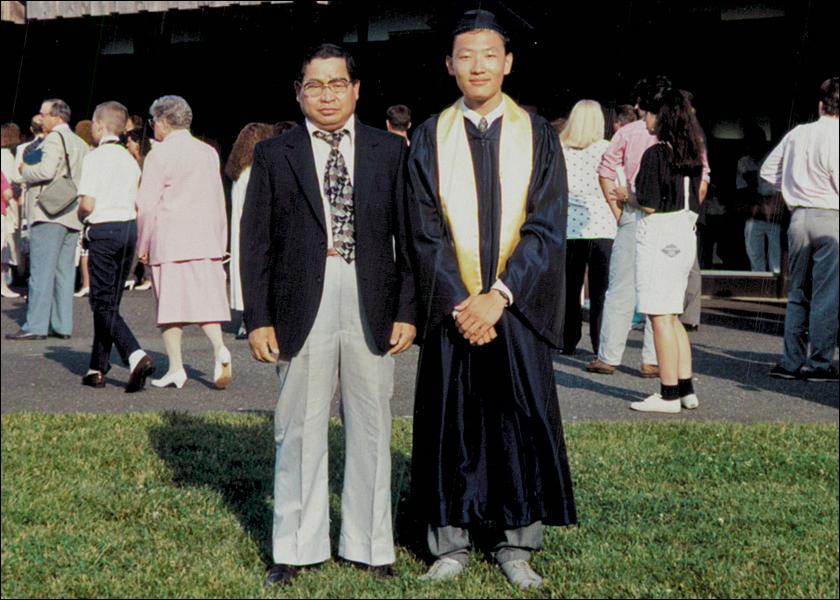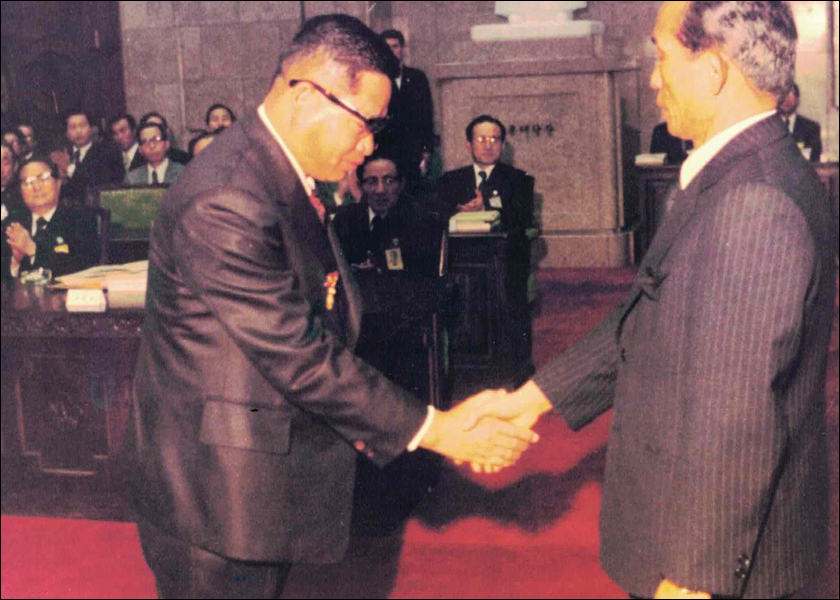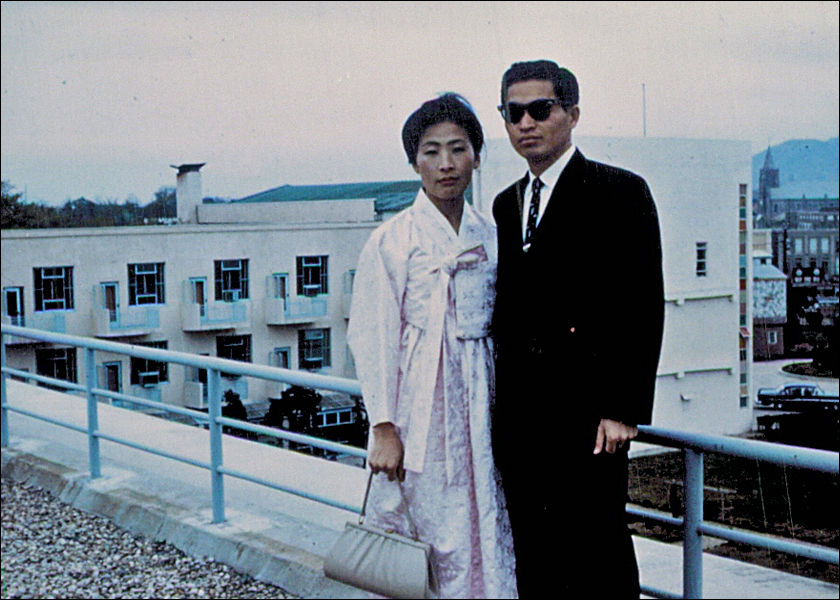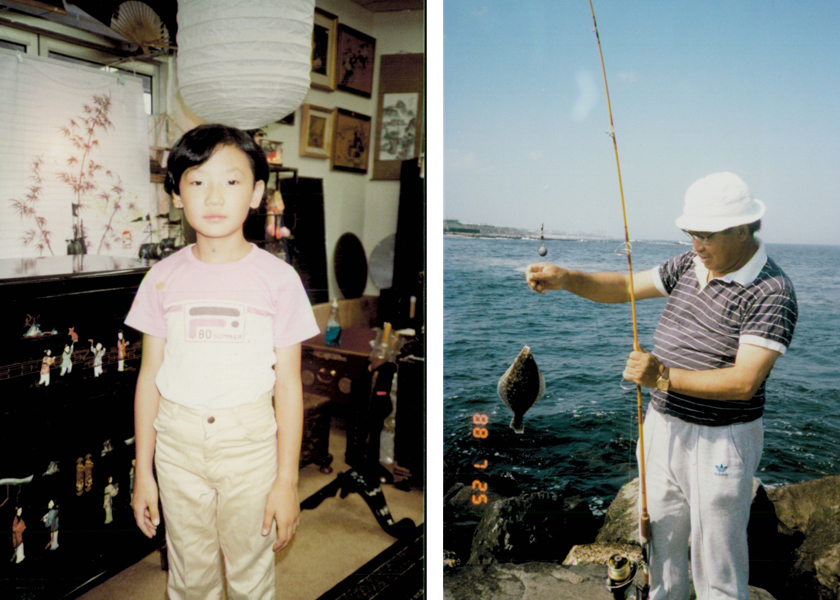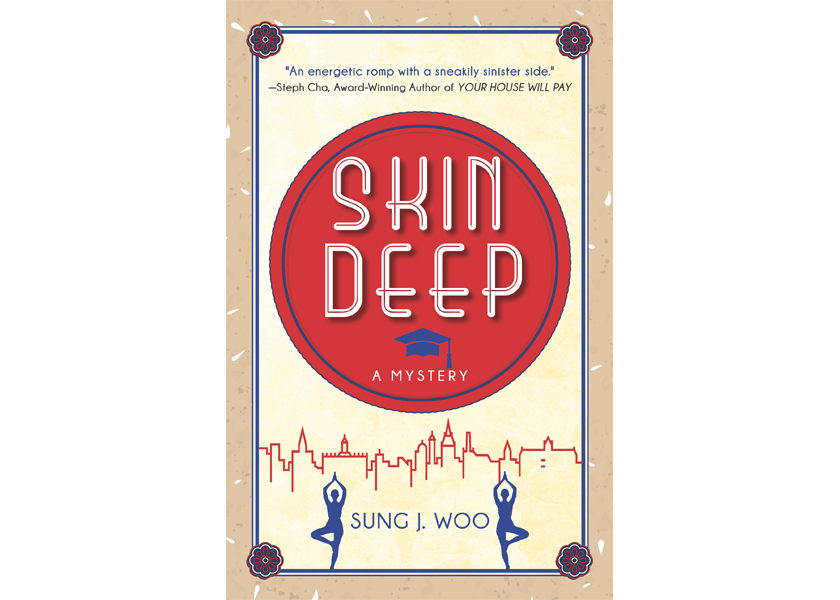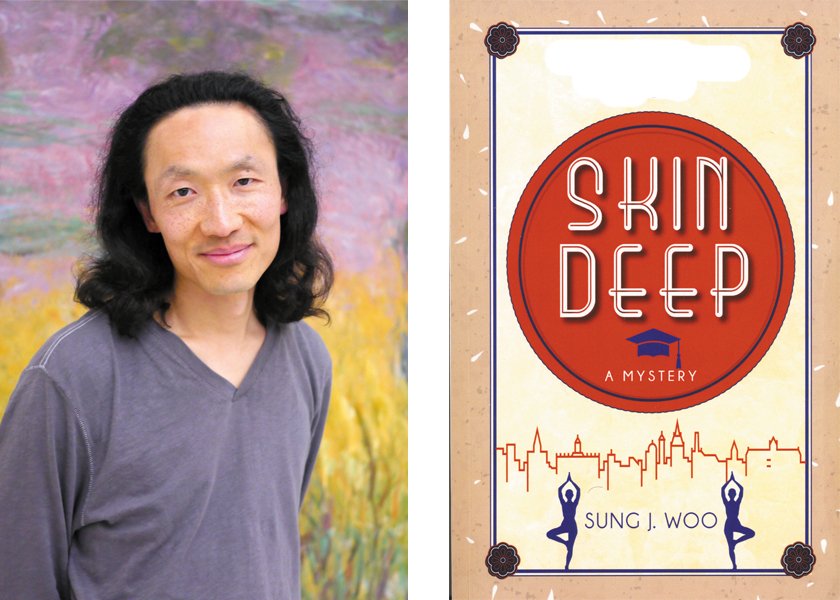Lines ~ By Sung J. Woo
(Unsolicited Press, Portland (OR), 2024, ISBN # 978-1-956692-50-1
Review by Bill Drucker (Summer 2024)
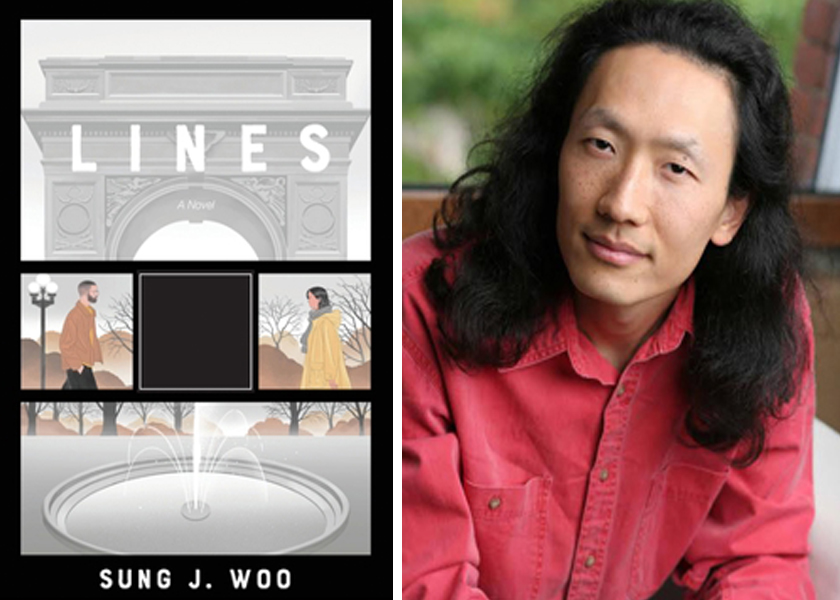
On a foggy day, in New York City, Joshua Koslov and Abby Kim engage in two possible “what if” scenarios. In one, the two literally collide by the Washington Square Arch. They engage, they date, and they marry. In the second scenario, they pass each other in close proximity in the fog, and do not meet.
With this rather brash premise for a fictional work, Sung J. Woo weaves a set of intricate narratives, one with the protagonists Josh Koslov, a frustrated writer and Abby Kim, a talented artist in a parallel existence; and the second in which they are in an intersecting existence. The story, in two scenarios, is set in contemporary New York City, a location familiar to the author, who earned his Master’s of Fine Arts from New York University.
The author explores the characters of Joshua and Abby – their human relationships, their inner lives, and certain chance moments that are seized or passed by. The story is simple. The complexities are in the decision-making and impulsive choices they engage in, and their consequences.
Woo has written an engaging, modern love story. It is, however, a literary exercise in “what if” scenarios with variations of possible opportunities and vagaries of chance. The reader has to be accepting of the technique in order to get into the novel with understanding and enjoyment.
That said, Woo executes this literary exercise with creativity and a lot of emotional detail. There are themes of fate, blind chance, the butterfly effect, and the popularized “sliding doors moment” all suggest that seemingly inconsequential moments do indeed alter the trajectory of future events.
This literary device has been written about, and played out in movies, such as the Polish art film, Blind Chance (1987), the American Sliding Doors (1998), and the German film Run Lola Run (1998). All of these works play on a “What if I made this choice” premise.
Blind Chance is laden with philosophical and ideological gravitas in which the protagonist is given three choices. Sliding Doors is a slick, Hollywood romance with conditional premise; that the life of the character Helen (played by Gwyneth Paltrow) will go in two very different directions based on whether she does or does not catch a certain train. As with the novel Lines, there are some significant consequences put in motion through the characters’ simple acts. There are certain bleak and fatalistic premises in these works, as exemplified by the character Josh’s perpetual disappointment with the results of his own actions.
In Lines, the two protagonists are young, educated New Yorkers who both aspire to be successful professionals; Josh as a writer and Abby as an artist. Abby and Josh are a couple in one scenario. In the other scenario, Josh is with Marlene, and Abby is with Ted. They navigate their marriages, their professions, support their spouses, tolerate their respective mate’s self-absorption, talk of children, and various successes and disappointments.
In his writing, Woo shows his knowledge of the young, educated and mobile class of New Yorkers rooted in literature and art. They are familiar with Hemingway, Tolstoy and Dickens. They have given their cadre of hi-tech professionals a combined acronym, FAANG or Facebook, Amazon, Apple, Netflix, Google. This mobile crowd moves in highbrow circles and act like they belong, when they are actually not rich. They get around by riding a PATH (Port Authority-Trans-Hudson rapid transit) or MTA (Metropolitan Transit Authority) train, and grab a lot of snacks from outdoor food vendors on their way to fancy events.
Disappointment seems to be a subtext in the life of frustrated writer Josh. His manuscript has been turned down so many times, he does not even bother to count any more. However, he remembers everything about his debut novel, The Tragic Tolstoys. He ruminates over how it took nine years to complete and how it was rejected by publishers 26 times. By the 27th time, expecting another rejection, a little-known publisher offers to take it on with an advance of a paltry $100. It is hardly worth celebrating, but his wife Marlene insists they celebrate.
Josh stews over the success of a fellow writer. His ego agrees with the New York Times review, which pans the writer’s ability as mediocre, describing her effort as “contrived, schematic, rootless, obvious.” Still, Josh decides to call and congratulate her for getting a review in a prestigious newspaper.
She welcomes the call and says she remembers Josh’s name on an NYU listserv, adding cleverly that he is a “fellow survivor of the creative writing program.” Josh makes a low-handed dig at the negative review. She cheerfully shrugs it off. They chat and then she excuses herself to pick up her child. The reader wonders at this action, since Josh is described as jealous, spiteful, and self-flagellating. He is portrayed as conflicted about and envious of his colleague’s comparative success, while seeming to deny those feelings.
At his book opening, Josh is let down by the small size of his author photo which he perceives as another sign of his insignificance. Although he does not expect a cheering audience of fans, he is disappointed by the small showing. The presence of Abby the artist, who is now pregnant, lifts his spirits.
In this scenario, Abby has had success on the internet selling her beautiful miniature artworks. Her titles for her artful disks are fanciful, such as Cycling Guide to Lilliput. Josh is taken with the marvelous little scenes, and begins to write creative vignettes to accompany the description of the artwork. Abby’s fans love it, and she emails Josh, complimenting his creative writing. On the street, Josh gets praise for the little stories but nobody ever mentions his novel.
As the success of the miniatures rise, and Josh spends more time writing the vignettes, his life gets complicated. His new pursuit becomes consuming. When Marlene asks what he’s doing, Josh say nothing and closes his laptop. Abby’s husband Ted also questions Josh’s literary contribution. Josh begins dreaming about the tiny paintings. He wakes up with his wife Marlene but he imagines her to be Abby. Even when his son is born, he is still preoccupied by thoughts of Abby
In both scenarios, Josh is unhappy with his life, and his writing is stagnating as he turns 40. In both of his lives, as the Josh married with Abby, and the Josh married to Marlene, he falters as a husband and as a writer. It’s his own doing. His life with Abby is winding down after five years. His life with Marlene also ends as Marlene succumbs to cancer.
At the funeral, all Josh can think of is how his pants are too small. The barn door could pop open anytime. Josh looks at a roomful of sympathetic strangers. Is this what it all comes to? He suddenly realizes he has been a coward all his life. Josh gets up to leave. As he hurries to open the doors, he cannot get to the outside light fast enough.
You can’t begrudge a writer who is popular and established from stepping over conventional literary boundaries into a more experimental form and format. The literary device stretches the mind of the reader just as it does for the writer. This author’s literary shift doesn’t come out of the blue. Woo’s writing history shows many forays into the unusual; one example is his earlier novel Skin Deep. That novel deals with tennis and porn, identity and therapy.
Woo plays with a subtext of geometry. Each chapter is a parallel or intersecting narrative. In math, parallel lines never intersect. Among humans however, parallel lines/paths/lives can and do intersect.
Artist Dina Brodsky incorporates her beautiful miniature scenes into the storyline, which gives the novel another unique characteristic and fun factor. By themselves, the disk-shaped illustrations are exquisitely detailed artworks.
Woo is a recognized short story writer, essayist, and novelist. His winning novel Everything Asian was published in 2009. Other novels include Deep Roots, Love, Love and Skin Deep. His writings have appeared in literary journals and magazines.


